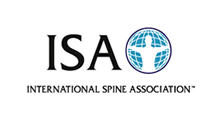
Spine Disorders
|
WHEN TO SEE A SPINE
SPECIALIST You should
seek the advice of a spine specialist if neck or back pain persists for more
than two weeks or if it is progressive in intensity and/or distribution. You
should seek immediate healthcare attention if neck or back pain occurs as the
result of an injury or if it is associated with serious illness and/or a high
fever. Additional signs and symptoms which warrant prompt medical attention
include:
SCREENING AND DIAGNOSIS The
evaluation process begins with a thorough medical history and physical
examination. Particular attention is placed on the assessment of neck range of
motion, spinal segment function, muscle function, reflexes and the evaluation
of neck (cervical), trunk and extremity sensation. The attending physician will
also evaluate for the presence of other conditions commonly associated with
whiplash such as head trauma. The evaluation may include spinal X-rays to rule
out a fracture and/or spinal segment dislocation. This portion of the workup
may also include a computerized tomography (CT) scan of neck. An MRI may also
be performed to further evaluate soft tissues of the neck such the
intervertebral disc, ligaments, spinal cord, spinal nerve roots and the soft
tissues surrounding the neck and upper back. The diagnosis of whiplash syndrome
is based on a constellation of sign and symptoms. If there is no history of neck
injury, whiplash is unlikely and therefore an improper diagnosis. NATURAL HISTORY AND
PROGNOSIS Generally,
the prognosis for individuals with whiplash is good. In mild cases, neck and
head pain often resolves within a few days or weeks. Most patients recover
within 3 months after the injury, however, residual neck pain, headaches, pain
and numbness in the arms may persist with injuries causing disc herniation. The
more extensive the injury, the longer it takes for recovery. COMPLICATIONS The
complications associated with whiplash injury include:
|
















